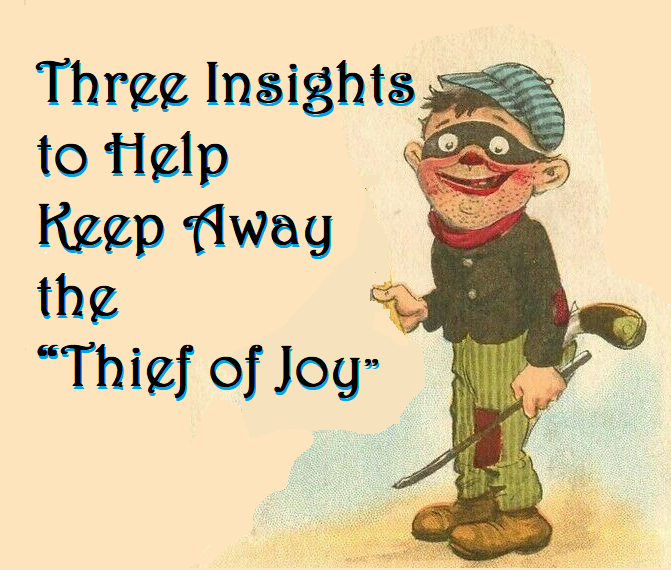There is a familiar saying that dates back about a hundred years that goes, “The grass is always greener on the other side.” It suggests that we tend to feel that somehow our neighbor’s lawn (i.e. circumstance) is superior to ours. This is not a new dynamic. Around two thousand years earlier, the ancient Roman poet Ovid put it this way: “The harvest is always richer in another man’s field.” There is a more recent quote—variously attributed to Mark Twain, Teddy Roosevelt, and a few others—that announces, “Comparison is the thief of joy.” It means, of course, that when we compare what we have with others we somehow diminish our own sense of satisfaction.
It goes without saying that comparing our situation to that of another person whom we feel is more (in some aspect or other) fortunate than we are can lead to unhappiness. While we would be better off to refrain from that line of thinking, it is only human to hold such troubling thoughts. And trying to block these sentiments from one’s consciousness can be extremely challenging. So I’d like to step through this dynamic and offer some insights and constructive strategies to help let go of these unhelpful comparisons.
Insight #1: We don’t know everything about other people.
We just can’t. This is true even for people we know very well; there are always aspects that are hidden, unrevealed, undiscussed, even among intimates. Our perception of other people is based on a combination of the filter through which we view the world, and what other people reveal about themselves. And when it comes to people we are less close to, there is a great deal we don’t know about them. So when we compare ourselves unfavorably with someone else, we tend to do it unfairly both to ourselves and the other person we envy. We are not seeing the whole picture, just the part that jumps out at us, without nuance and often unconnected to a larger context.
For example, sometimes there is a facet of a person that incites envy in other people; yet that seemingly positive facet is connected to something traumatic or painful. Years ago, a friend lost a great deal of weight and received many compliments; but no one knew that she had been desperately ill for months. There are some musicians and athletes who demonstrate tremendous ability, but the punishing price they’ve had to pay to attain their level of prestige may not be a price many people would be willing to accept.
So while we may look at a single aspect of someone else with envy, they carry other aspects that we most certainly would not wish to take on.
Insight #2: When we compare ourselves to others, we reduce them to what we envy.
When we get stuck in comparisons, we inflate one aspect of the other person and focus on that, reducing them to the thing we fixate on.
I realize that may sound a bit confusing. Let me put it this way: suppose we envy someone for something really simple; let’s say, their beautiful hair. Their hair is not the most important aspect of who they are, and certainly not the only aspect of who they are. They may or may not even think it’s an important part of who they are. But by focusing on their hair, and investing our emotional longing onto it, their hair has taken on an oversized role in our understanding of who they are. Obsessing over their hair affects our relationship with them. It diminishes them, in our mind, from a fully multi-dimensional person to “that person with great hair,” because it over-emphasizes a single aspect of who they are.
This may seem like a minor issue, but we are social beings. We yearn to connect with others. Anything that gets in the way of our authentically connecting with the people in our world dims our own inner light.
Insight #3: Comparing ourselves with others only serves to separate ourselves from others.
This is along the same lines as Insight #2. When we compare ourselves with others, we take a step toward isolating ourselves. Not only are we distorting our ideas of who the other person is (as discussed in the previous insight,) we are doing pretty much the same thing to ourselves. A sense of negative self-regard is often part of this dynamic. To use that previous insight’s example, if I’m so envious of your fabulous hair that I inflate its importance to me, I am also negatively inflating that aspect of myself that I consider inferior in myself. I get hung up on what I perceive is its inferiority; which is to say, something wrong about me. These feelings can’t help but make one feel lonelier, less worthy, and disconnected. Moveover, feelings of resentment often accompany such comparisons. (After all, why does someone else deserve some fabulous thing denied to me?)
Disconnection, toxic self-criticism, and resentment all contribute to feelings of isolation, alienation, and feelings of lack.
There is a way beyond negative comparisons
Whether the grass is really greener in the neighbor’s yard, or that neighbor is actually envying the green-ness of your own grass, comparisons rooted in a sense of lack diminish one’s true, most essential self. Anyone who has spent even a little time reading my social media posts will be familiar with my suggested solutions out of this dynamic: embracing mindfulness and gratitude.
The importance of Mindful Thinking
With mindful thinking, we can understand how our envying aspects of another person is dead end thinking. Dead-end thinking offers little benefit to anyone. Allowing space to acknowledge the realities of the three insights we discussed can help dispel traces of envy as well as resentment. As seen through a mindful lens, acknowledging something fabulous about another person may bring us closer to them, or even inspire us. Sometimes, that inspiration can fuel new motivation for us to reach beyond limitations, to find our own way to manifest something fabulous!
Mindful thinking also encourages us to acknowledge everything that is good and positive about ourselves. Putting our focus there invites the second part of my suggested solutions: gratitude.
The importance of Gratitude
The use of gratitude for the things we have is a powerful tool. As I previously wrote in a post about gratitude, acknowledging and focusing on the positive aspects about ourselves can guide us away from the dark rabbithole of envy.
The takeaway:
In a very real way, we are the sum of the stories we tell ourselves about ourselves. If our defining stories are about ourselves and not other people, and these stories focus on growth, positive progress, and the blessings we already have… well, our joys need fear no thief!





